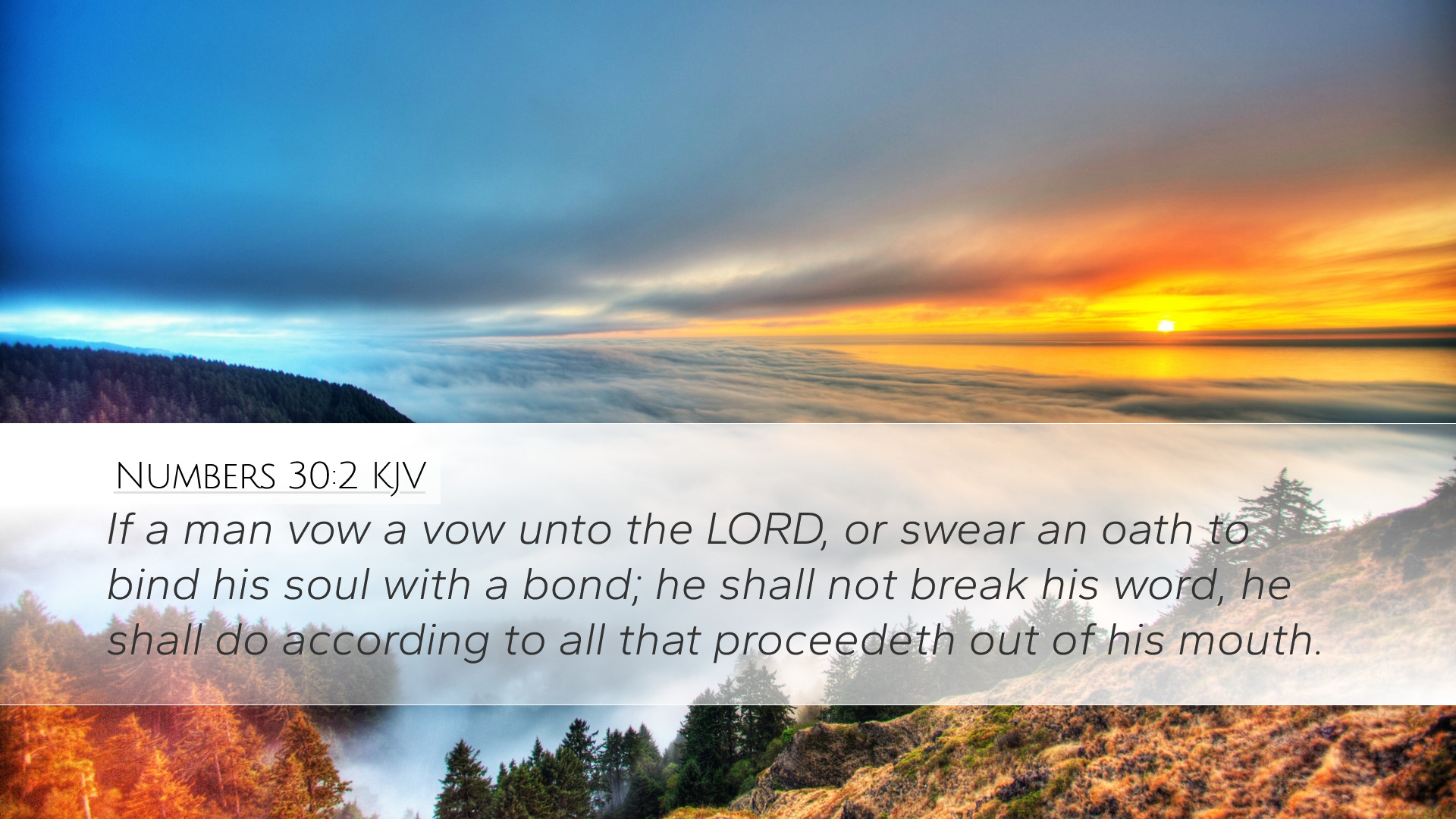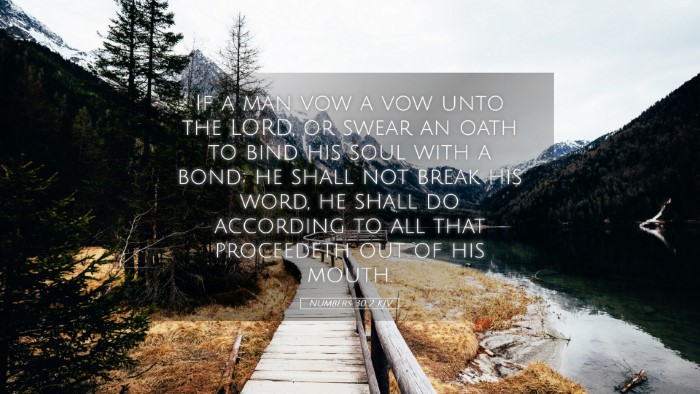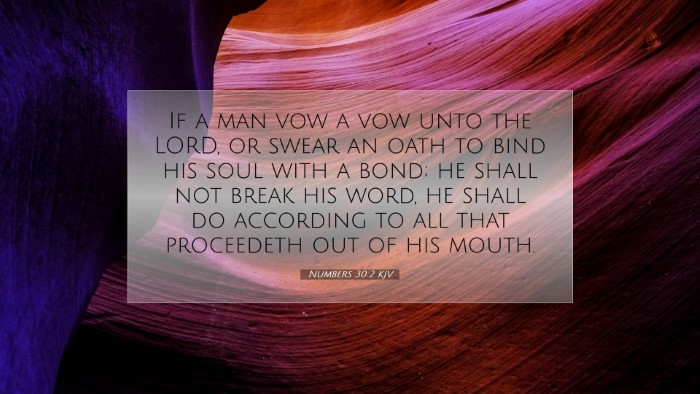Commentary on Numbers 30:2
Bible Verse: "If a man makes a vow to the Lord, or takes an oath to bind himself by a pledge, he must not break his word but must do everything he said."
Introduction
The verse Numbers 30:2 underscores the seriousness of promises made before God. It sets the foundation for understanding the nature of vows and oaths in the context of the Israelite community and their relationship with God. Throughout biblical history, vows are depicted not merely as ceremonial expressions but as binding commitments that reflect one’s faithfulness and integrity.
The Nature of Vows
Definition and Importance: A vow is a solemn promise made to God. Vows in the ancient Israelite context were not taken lightly; they involved personal accountability and were seen as a means of expressing one’s devotion and faith.
Matthew Henry notes that a vow is an act of piety and an acknowledgment of God's sovereignty in one’s life. When an individual makes a vow, they are not only committing to actions in the future but are also placing themselves under divine scrutiny.
Insights from Public Domain Commentaries
Matthew Henry's Commentary
- The Importance of Faithfulness: Henry emphasizes that faithfulness in keeping vows is a reflection of one's character. It is a duty of every believer to uphold their commitments, especially those made to God.
- Divine Accountability: He asserts that violators of vows face spiritual consequences. By making a vow, one voluntarily places themselves under God’s judgment, which serves as a motivator to honor one’s commitments.
- Public vs. Private Vows: Matthew Henry further differentiates between private and public vows, arguing that both require careful consideration and sincerity, as they represent one’s witness before the community and God.
Albert Barnes' Notes on the Bible
- The Binding Nature of Vows: Barnes points out the legal implications of vows in the Jewish tradition, stressing that to break a vow is to dishonor both oneself and God. He suggests that such seriousness stems from the covenantal relationship between the covenant community and God.
- Contextual Understanding: He addresses the cultural environment of Israel and how vows served as a social contract, reinforcing moral responsibilities within the community.
- Vows as Worship: Barnes describes the act of making a vow as an act of worship, where the individual recognizes God’s authority and seeks to align their actions with divine will, fostering spiritual growth and discipline.
Adam Clarke's Commentary
- Vows and Human Promises: Clarke suggests that vows indicate humans' desire to establish a personal covenant with God. They signify a commitment that goes beyond ordinary declarations and promises.
- Caution Against Hasty Vows: He warns against making vows hastily or without sincere intention, advocating for thoughtful consideration of the implications of such commitments.
- The Impact of Vows on Spiritual Life: Clarke asserts that vows can significantly impact one’s spiritual journey, nurturing a deeper relationship with God while simultaneously encouraging accountability within the believer’s daily life.
Theological Reflections
Numbers 30:2 serves as a reminder of the gravity of commitments made before God. From a theological perspective, this verse aligns with the broader biblical narrative emphasizing faithfulness, integrity, and the sanctity of one’s words.
The concept of vows deepens our understanding of God’s expectations about honesty and integrity not just in matters of faith, but in all aspects of life. It challenges believers today to examine their own commitments and the weight of their words, encouraging a lifestyle marked by transparency and accountability.
Practical Applications
- Encouragement for Personal Reflection: Believers are encouraged to reflect on any vows they may have made, ensuring they have upheld their commitments in accordance with their faith.
- Teaching Responsibility: Pastors and leaders can incorporate discussions on the nature of vows in sermons, teaching congregants about the importance of keeping one’s word as a testament to their character and faith.
- Call for Seriousness in Commitment: As believers engage in any form of commitment—be it in ministry, relationships, or personal life—there is a call to approach such promises with careful consideration of the implications of their words.
Conclusion
Ultimately, Numbers 30:2 is a text that calls for sincerity, accountability, and a deep reverence for our commitments before God. Through insights from public domain commentaries, we recognize that vows are significant expressions of our relationship with God and our moral obligations to one another. The call to uphold our oaths and to act with integrity remains a timeless principle that is critical for personal spiritual development and communal harmony.


